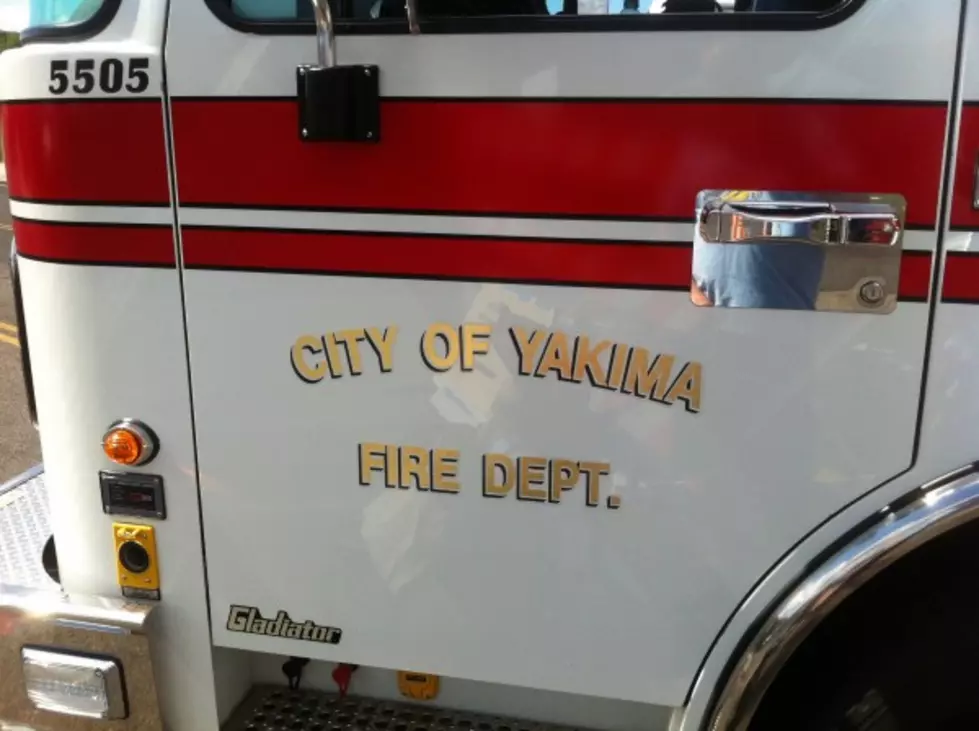
Missing Wisconsin Democrats Who Skipped Anti-Union Vote Left the State, Senator Says
The 14 Senate Democrats who are boycotting a vote on a controversial "union-busting" bill have left the state, a Wisconsin state senator said.
Sen. Jon Erpenbach says the group wants to force negotiations over the Republican-backed bill, which would strip most public employees of their collective-bargaining rights.
Erpenbach said that he and his colleagues had left Wisconsin, but he would not say where.
He said the plan is to slow down the bill because it's "tearing the state apart."
Senate Republicans hold a 19-14 majority but can't vote on the bill unless at least one Democrat is present. Police could be dispatched to retrieve them, but it was unclear if they would have the authority to cross state lines.
"It's kind of unbelievable that they're elected to do a job and they wouldn't show up to do it," Republican Assembly Speaker Jeff Fitzgerald told Fox News.
Fitzgerald said the apparent boycott may force the State Assembly to vote first on the bill. But he added that if police officers find the lawmakers, they will bring them back to the chamber for a vote.
"This isn't something I've ever seen in the state of Wisconsin," he said. "It's a very volatile situation right now but those people were elected to do a job and unfortunately they're not doing it. They're not representing the people of their district."
Newly elected Republican Gov. Scott Walker has called on the Democrats to return to the chamber.
"Out of respect for the institution of the Legislature and the democratic process, I am calling on Senate Democrats to show up to work today, debate legislation and cast their vote," he said in a statement. "Their actions by leaving the state and hiding from voting are disrespectful to the hundreds of thousands of public employees who showed up to work today and the millions of taxpayers they represent."
The bill has sparked a storm of protest for three days. Teachers marching at Wisconsin's Capitol Building in Madison shut down schools for a second day Thursday so they could demand collective bargaining rights that they say are essential to keeping kids in school.
Dozens of schools closed as a result of high absences as thousands of protesters, including students and teachers, marched on the Capitol building to demand state lawmakers strike down a bill that would require union concessions worth $30 million by July 1 and $300 million over the next two years.
The Democratic National Committee's Organizing for America said it is playing an active role in organizing protests against the bill.
The bill, which also bans collective bargaining rights for teachers, requires educators to contribute 5.8 percent to their pensions and 12.6 percent to their health care. Currently, educators pay 0.2 percent for their pensions and 4 to 6 percent of their health care costs.
"Our goal is not to close schools, but to instead to remain vigilant in our efforts to be heard," said Mary Bell, president of the 98,000-strong Wisconsin Education Association Council.
State lawmakers proposed the legislation as part of an effort to close a $3.6 billion budget gap, and say they expect it to pass and eventually reach the desk of Walker.
Missing Wisconsin Democrats Who Skipped Anti-Union Vote Left the State, Senator Says
Published February 17, 2011
| FoxNews.com
"It's kind of unbelievable that they're elected to do a job and they wouldn't show up to do it," Republican Assembly Speaker Jeff Fitzgerald told Fox News.
Fitzgerald said the apparent boycott may force the State Assembly to vote first on the bill. But he added that if police officers find the lawmakers, they will bring them back to the chamber for a vote.
"This isn't something I've ever seen in the state of Wisconsin," he said. "It's a very volatile situation right now but those people were elected to do a job and unfortunately they're not doing it. They're not representing the people of their district."
Newly elected Republican Gov. Scott Walker has called on the Democrats to return to the chamber.
"Out of respect for the institution of the Legislature and the democratic process, I am calling on Senate Democrats to show up to work today, debate legislation and cast their vote," he said in a statement. "Their actions by leaving the state and hiding from voting are disrespectful to the hundreds of thousands of public employees who showed up to work today and the millions of taxpayers they represent."
The bill has sparked a storm of protest for three days. Teachers marching at Wisconsin's Capitol Building in Madison shut down schools for a second day Thursday so they could demand collective bargaining rights that they say are essential to keeping kids in school.
Dozens of schools closed as a result of high absences as thousands of protesters, including students and teachers, marched on the Capitol building to demand state lawmakers strike down a bill that would require union concessions worth $30 million by July 1 and $300 million over the next two years.
The Democratic National Committee's Organizing for America said it is playing an active role in organizing protests against the bill.
The bill, which also bans collective bargaining rights for teachers, requires educators to contribute 5.8 percent to their pensions and 12.6 percent to their health care. Currently, educators pay 0.2 percent for their pensions and 4 to 6 percent of their health care costs.
"Our goal is not to close schools, but to instead to remain vigilant in our efforts to be heard," said Mary Bell, president of the 98,000-strong Wisconsin Education Association Council.
State lawmakers proposed the legislation as part of an effort to close a $3.6 billion budget gap, and say they expect it to pass and eventually reach the desk of Walker.
"This bill isn't about an assault on public employees. We have great public employees throughout the state, I have them in my district, hard-working folks," said Republican state Assembly Speaker Jeff Fitzgerald. "What this is is about the budget. We're $3.6 billion in the hole. We're not going to raise taxes to solve it. We all ran, you know, this last election cycle on saying that we are going to cut government spending. ... Everybody is going to have to do their part."
But Michael Langyel, head of the Milwaukee Teachers Education Association, said Walker and Republican lawmakers are asking public employees to give up more than everyone else.
"If people say the only way to solve this budget crisis is to take away from people who are working hard, they are wrong. We believe that we have a right to have a fair wage for our hard work. More importantly, the collective bargaining process allows us to positively impact school policy issues. We are the advocates for our students, and we will maintain our voice in defending our students," he told Fox News.
Langyel added that if Walker wants to balance the budget, he should force his friends to pay more.
"There are many people who support the governor who contribute nothing and pay nothing and are not contributing. This is the time to have fair taxation in the state of Wisconsin, where the friends of the governors do not get a free ride and the hard-working people have to carry the extra burden," he said.
Speaking Wednesday to WTMJ4 in Milwaukee, President Obama weighed into the debate, saying that making it harder for public employees to collectively bargain "seems like more of an assault on unions."
"I think it is very important for us to understand that public employees, they're our neighbors, they're our friends," he said. "These are folks who are teachers and they're firefighters and they're social workers and they're police officers."
It is important "not to vilify them or to suggest that somehow all these budget problems are due to public employees," Obama said.
Education Secretary Arne Duncan told Fox News on Thursday that he is "troubled by the current climate" but was hopeful for a good resolution. He added that everyone is going to have to compromise even as teachers perform "Herculean" work.
"We have to work together with them to give every child a chance for a great education and we need to work together and we need to prove outside the comfort zone but to vilify one group or demonize one group doesn't move us as a country that we need to go," Duncan said.
But Walker said the demands on public employees are "modest" compared with those in the private sector, and are meant to prevent a shutdown, which could result in 6,000 state workers not getting paid.
"We're at a point of crisis," the governor said, adding that he would call out the National Guard if needed to keep state operations, including prisons, running.
According to the Bureau of Labor Statistics, in 2008, the average salary for an elementary school teacher was $51, 240 while middle school educators earned $50,950 and high school teachers earned $49, 400.
Wisconsin's measure would end collective bargaining for state, county and local workers, except for police, firefighters and the state patrol. Unions still could represent workers, but could not seek pay increases above those pegged to the Consumer Price Index unless approved by a public referendum. Unions also could not force employees to pay dues and would have to hold annual votes to stay organized.
Republican-backed changes to the bill made by the state's Senate budget committee Wednesday would extend a grievance procedure to public workers who don't have one and require more oversight and put a deadline on changes.
Fitzgerald said despite the heated debate, and individual threats against lawmakers, the majority of Wisconsin residents approve of the bill.
"Although the protesters have been very rowdy, very one sided on what legislators are hearing, there's a silent majority out there that spoke on November 2, said, you know, we have to (head the state) in the right direction to put our fiscal house in order. So that's what we're going to do. It's very difficult but you know that's what we're set out to do and hopefully."
Foxnews.com











